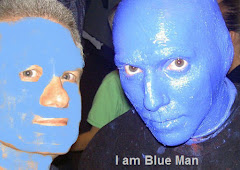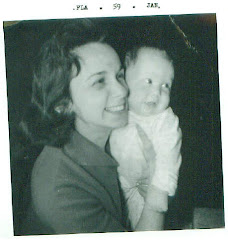I just finished reading an synopsis of "The Value of Solitude: The Ethics and Spirituality of Aloneness in Autobiography by John D. Barbour. In it, Barbour looks at the value in solitude. For some reason, I've had the opportunity to review a few writings about solitude in a quest to better understand that quality in those excellent mentors that I've had over the years in medicine and in myself. 
I really am an introvert. In the outgoing, hustle society of South Florida I recognize it more and more each day. I love the idea of going back to the island to study. I'm sure that it baffles my parents, family, friends and lovers as much as it does me sometimes. Because on the outside I'm sure that some see confident extroversion, but internally I am energized by solitude and alone time. We are comfortable in public speaking situations because those situations lack intimacy. Where introverts struggle is in the more intimate settings of small group conversation.
I think the confusion for others in dealing with introverts is that we can be rather charismatic speakers, seemingly outgoing and sometimes popular with others (at least some). We can be outspoken and opinionated giving the guise of extroversion. And while we are very loving, and caring (sometimes to sensitive fault) of others, we NEED solitude and solitary pastime. This is very confusing for those we live with (although we love to live alone), work with or love.
We already feel guilty about wanting space and solitude from family, friends, and lovers. Laying more guilt on me only forces me to go deeper into solitude. We really only need the gift of space, and the even rarer gift of understanding from others. "I need space," is NOT a code for I don't love, I don't care or I don't want to be with you. Sometimes it comes off as rude, but it's really self salvation and preservation to be able to do what we do each day in our lives, work, and play. Don't take it personally. It's not about you. Not everyone thrives on having people around all the time, and, if that's true for you.
While some might argue that patient care is an intimate encounter between a doctor and a patient and/or family, it is not. It is an analytical event sprinkled with understanding, compassion and empathy. Introverts are very sensitive, compassionate and take the time to sit and talk when necessary, but their minds are solving the problem to move on to the next problem. They don't want to become friends with their patients, spend time in idyll chit or chat, and don't really care to ask about your kids when you visit them, but they'll ask. While medical schools and residency programs seem to relish in the passion and energy of the extrovert in interviews (I've been involved in more than a few as an interviewer), introverts, at many levels, may actually better primary care physicians. Extroverts seem to be guided and set up to become surgeons and specialists...just what the world needs less of.
"Responsibility, self knowledge, joy, openness to the new, courage to face the unknown — all the various and beautiful forms of wisdom and happiness — are harvests that come most bountifully to those who have learned to be alone with themselves." - Reverend Amy Zucker Morgenstern, Unitarian Minister





